Uttar Pradesh will make significant use of agritech to improve its agricultural production, dairy, poultry, and fisheries sectors. It will provide better market linkages, reduce waste, improve cold storage infrastructure, and provide better supply to the food processing industry as it aims to become a $1 trillion economy by 2028. Anand Ramanathan, partner, Deloitte India, said agriculture will be one of the key areas for the projects the state government will undertake to meet the deadline.
The Yogi Adityanath government hired Deloitte India to play a key role in the effort. “The initial strategic development phase has been approved and implementation of various initiatives has officially started,” Ramanathan told Businessline in an online interaction.
Contribution of the agricultural sector
Currently, the economy of the northern state is 240 billion dollars, of which 60 billion dollars is in agriculture, including the EU region. Agriculture needs to increase to $250 billion to meet the country’s overall goal of becoming a $1 trillion economy.
“In this area, we are working with various stakeholders including private stakeholders and major multilateral donor agencies to develop the agriculture sector,” Ramanathan said. The consulting company works with agtech companies. It is in touch with about 40 agritech companies that Deloitte India believes will play an important role in manufacturing intervention. “If you look at sugarcane. Because it’s so tightly controlled, there’s a good understanding of production. But in other areas, it is all very outdated. So, can we use modern technology to measure production? Ramanathan said. data collection
Agritech companies will become dependent on scientific crop research and better data collection to avoid leakages and increase farmers’ incomes.
“We help agricultural machinery companies collect data on different crops. These participants provide opinions and collect products from farmers’ organizations (FPOS). In the regional region, if we have any AGTECH members to cooperate with to buy products, we have identified the potential that better farmers know. “He said. With better technology diffusion, agritech companies will have a huge impact, with agricultural production expected to increase by 10-15% and farmers’ incomes to increase by 5-10%.
Agritech will be used for better weather monitoring, forecasting, insurance understanding, better compensation, precision farming, and better market linkages for farmers. Crop studios can be done using drone technology and machine learning, and artificial intelligence can be used for price assessment.
Filling food processing
The main goal of the Allies is food processing. “We have divided our plans into five broad areas,” said a Deloitte India partner.
The food industry is a part of the industry and people look at it from an agricultural perspective because the industry depends on agricultural products. “We have separate targets for each area. Deloitte has identified around 70 opportunities. If you look at the huge opportunities, one of the big areas is how we think about agricultural productivity,” he said.
One of the main areas of agriculture is dairy farming and fishing. “UP is the largest producer of milk but most of the production belongs to the unorganized sector,” he said
That is why we aim to get the private sector to play a significant role and reorganize the industry to add more value. Ramanathan said.
UP is a major importer of poultry products and fish, mainly from Bangladesh. “We are looking at whether the country can become a net exporter in some of these areas,” he said.
Opportunities in the dairy industry
There is a huge opportunity in the dairy industry to use technology to get more cows to deal with the stray animal problem. The state has increased subsidies for this, which will lead to higher productivity.
“As part of this, we work with private dairies, and all local members have excellent collection infrastructure. So, our view is that we can again look at these private players who collect milk from farmers and channel all that milk to organized business units to produce higher value-added products like ghee and butter,” he said.
Deloitte India is working on a three-pronged process involving cooperatives, private dairies, and farmers. The idea is that they should work together to ensure efficiency in milk procurement.
In fisheries, Deloitte India and the Uttar Pradesh government are looking at all the ponds. There are many inland ponds and one of the big tasks is to map them first.
Pond mapping using agricultural technology
“Agritech is again being used to map the location of these ponds and the possibility of using intensive methods of fish farming in the ponds that would yield higher returns. The process now is that the entire pond is auctioned to a particular player. But can we have a stricter process where they are held accountable for achieving a certain level of output,” Ramanathan said. Restructuring of existing fishing activities is an important area of development. This will include hatchery and fish seed development. The state will make investments where research and development of local fish will help determine what needs to be done to strengthen investment in the industry.
The poultry industry will focus more on micro-clusters than large food parks. This will help to set up a small feed mill dairy or storage facility.
The country has a dynamic sugar economy. “If you look at sugar, you will see that it is growing rapidly now because of the biodiesel and the energy aspect of sugarcane cultivation. So the focus is on how to grow them through value-added production and ensure that farmers get the MSP (minimum support price), and all sick factories can recover. Most of them have been revived and are doing well because of the energy,” said a Deloitte India partner.
Create a seed park
One of the challenges in ensuring high yields is obtaining good quality seeds. “We are considering setting up seed parks where farmers can get the latest hybrid varieties as well as local varieties as per their requirements. The seeds will be distributed through government agencies,” Ramanathan said. Uttar Pradesh has about 75,000 employees in the agriculture sector, including horticulture, on the government side to ensure the efficient functioning of these issues.
Deloitte India uses models from other parts of the world, including China, to bring knowledge to farmers about the latest cultivation methods and inputs that can help improve production and increase yields. Millet is currently in the national spotlight and Bundelkhand is launching a campaign for the nutritious grain. This is because millet is considered native to this region. The focus is on efforts to make the country self-sufficient in meeting the demand for bird feed.
Bundelkhand has the advantage of sharing borders with Uttar Pradesh in the west and east and hence the crop can be supplied to other states for fodder production. Uttar Pradesh will also seek to provide better processing facilities, including basic sorting and grading, to facilitate higher pulses production.
Crop Insurance
“Experience comes from Maharashtra, which has more than 201 packaging plants, of which around 160 are located in the state. UP will try to replicate Maharashtra’s success in grapes and other mango fruits,” Ramanathan said.
Uttar Pradesh is home to popular mango varieties like Dasheri, Langda and Chausa. It will first be tried to export it to other countries and then to foreign countries.
As monsoons and weather patterns change in recent years, crop insurance will play an important role. “We are working with various donor agencies to improve the crop insurance ecosystem. We will see how we can take advantage of building private facilities and look for microfinance institutions to scale up crop insurance,” said a Deloitte India partner. The project will specifically look at micro-cooling rooms to prevent wastage of fresh ingredients. This will help to come up with cold storage, e.g. 12 feet by 12 feet not only on the farms but also in the market, he said. “We are moving away from the whole concept of bulk food processing towards micro-clustering. One region, one product for all food categories and their ecosystems has also been identified.”
Investor friendly
At the same time, market linkages will be established through agricultural technology companies to export AML production to other parts of the country. Each region will make similar efforts to identify similar products.
Global best practices for value chains specific to a single crop, as New Zealand does with kiwifruit, will be followed. We will try to repeat it with guava and banana.
Ramanathan said efforts would also be made to brand Uttar Pradesh as investment friendly, given its people skills, better law and order, and other attractive opportunities like water. Deloitte India has worked with many countries, but this is the first of its kind on such a large scale.
The consulting company has presented its strategy and has started implementing it. It takes about three and a half years to reach this goal.







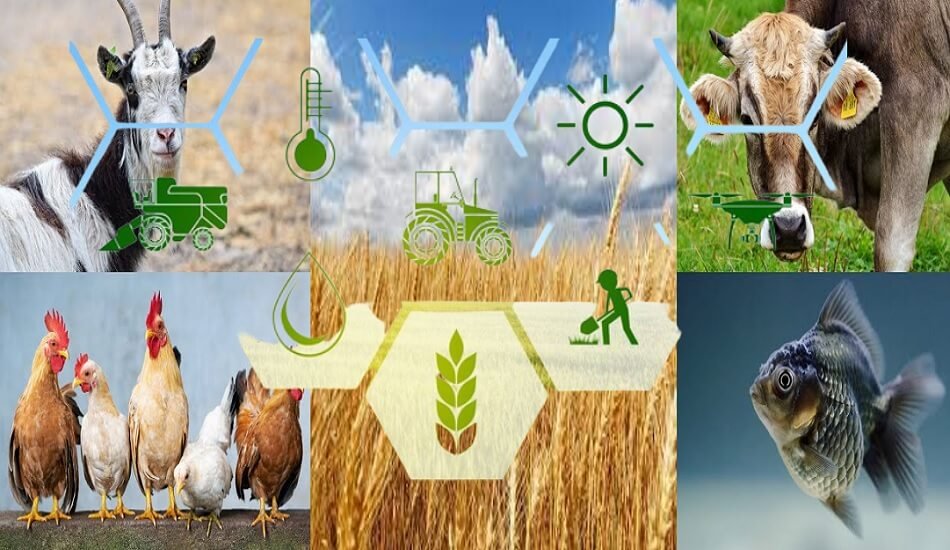

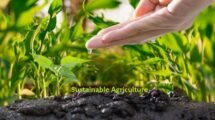
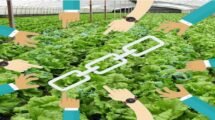
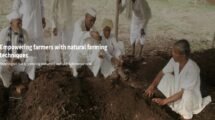
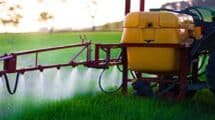





Add Comment